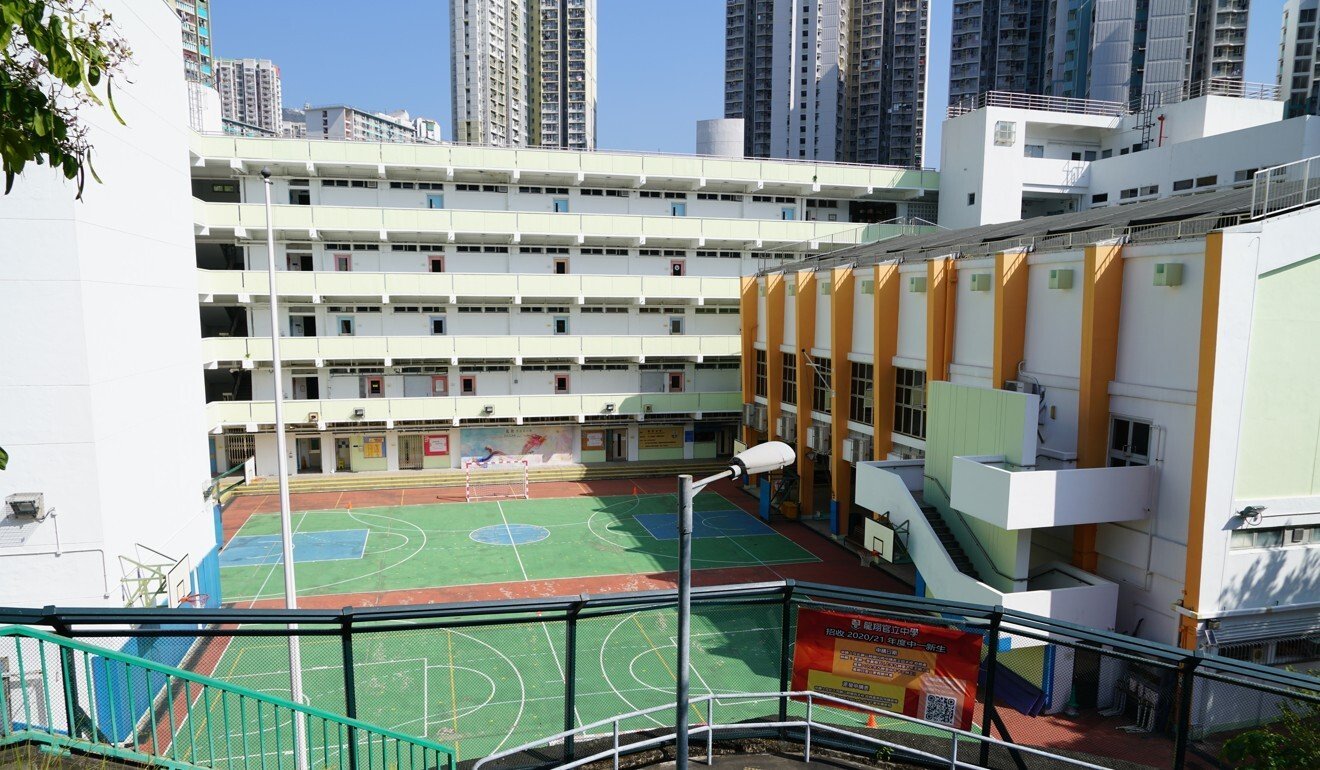Secretary for Education Kevin Yeung says inquiry continuing, and when it is finished results will be made public.
A teacher at a government secondary school in Hong Kong is being investigated for allegedly using biased materials in the classroom, the education minister revealed on Friday.
Secretary for Education Kevin Yeung Yun-hung said the inquiry was continuing, but when it was finished the results would be made public.
Yeung was responding to a local media report that the Education Bureau had completed the investigation and was considering disqualifying the teacher, which would make him the third to be stripped of his credentials in the past four months. Two non-government school teachers were delisted in October and November last year.

The minister did not name the school or the teacher, but said the educator was accused of using inappropriate, biased or incorrect teaching materials.
“The investigation is still ongoing,” Yeung said. “It is too early to comment on the punishment or how to handle the matter.
“We follow the established procedures, such as on teacher registration. If the person [teaches at] a government school and is a civil servant, we will handle the malpractice in accordance to civil servant regulations.”
A source said the teacher was from Lung Cheung Government Secondary School in Wong Tai Sin.
When contacted by the Post, a school employee declined to comment, urging the reporter to refer to the bureau for updates.
Yeung did not provide details of the allegedly offensive materials, nor which subject was involved, as he had not been “actively taking part” in the investigation, which was led by the bureau’s permanent secretary.
The Education Bureau said it would handle the case in accordance with the Education Ordinance and that it would disqualify teachers guilty of serious malpractice.
The bureau received 262 complaints about alleged professional misconduct by teachers between June 2019 – when anti-government protests erupted over a now-withdrawn extradition bill– and October 2020.
Investigation in 226 cases was complete. Among those, 85 complaints were ruled unsubstantiated, while two teachers were disqualified, 23 reprimanded and another 20 given warning letters.
Meanwhile, the bureau has also issued written advice to 20 teachers and verbal reminders to another 22.
Under the Education Ordinance, the permanent secretary may cancel the registration of a teacher if he or she is deemed “incompetent”, not a “fit or proper person to be a teacher” or has committed “professional misconduct”. The teacher can challenge the decision with an appeal board within 21 days of being served the notice.
According to the Civil Servant Bureau, formal disciplinary action is taken for serious misconduct or repeated minor misconduct. Depending on the gravity of the misconduct or criminal conviction, punishment under formal disciplinary action may range from a reprimand to compulsory retirement or dismissal.
Last October, the Education Bureau announced that a teacher from the Alliance Primary School in Kowloon Tong was stripped of his registration for life. He had promoted Hong Kong independence via materials and worksheets in violation of the Basic Law,the city’s mini-constitution, the bureau said. His supporters denied he had promoted independence.
It was the first time in recent years that the bureau had stripped a teacher of his qualification over classroom content, sparking debate over whether the harsh punishment would have a chilling effect on the education sector.
A month later, a teacher at Ho Lap Primary School, a government-aided school in Tsz Wan Shan was delisted after being accused by authorities of relying on “wild guesses” in class and providing incorrect historical details, including telling a Primary Two class that the first opium war between China and Britain was the result of “Britain’s attempt to ban opium smoking in China” – when, in fact, the opposite is true.
Officials also said he told pupils that paper had been invented to “prevent the extinction of animals”, as it had replaced the use of turtle shells and animal bones.
Meanwhile, the Education Bureau made the rare move of sending a letter to all secondary school principals saying a leaflet sent to them by a teachers’ union carried inaccurate information about the reform of the controversial subject liberal studies.
Titled “Murdering Liberal Studies”, the leaflet form the Hong Kong Professional Teachers’ Union accused the bureau of failing to conduct proper consultation before announcing sweeping changes to the subject last November. The class had drawn the ire of members of the city’s pro-establishment camp, who accused it of radicalising students.
Under the reform plan, liberal studies would be renamed, its textbooks would be vetted and parts of its syllabus would be trimmed, while students would be required to visit mainland China as part of the class.
In the letter sent to schools, the bureau said teachers should not be misled by the leaflet, as the content was inaccurate and biased.
The union expressed regrets about the bureau’s move, saying the leaflet aimed to share with teachers how certain views were not taken into consideration during the reform. It noted a survey it conducted that found more than 90 per cent of the teachers polled disagreed with the overhaul.















